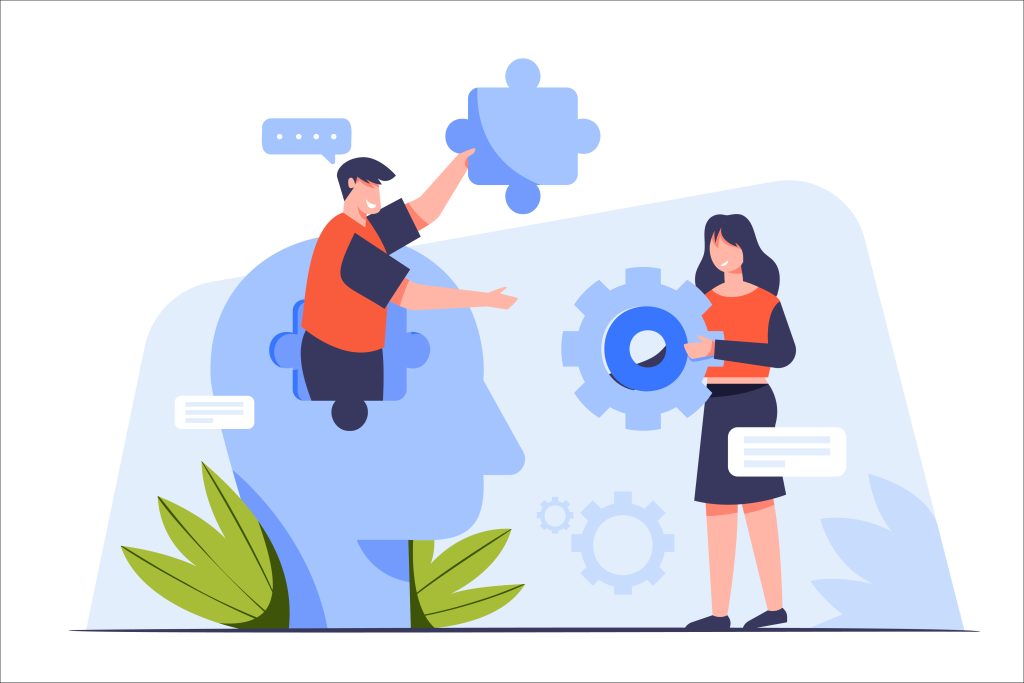Human Thinking vs AI is one of the defining debates of our time. From ChatGPT to autonomous vehicles, AI is redefining the world—but there’s a catch. In the rush to automate, society is hitting a wall: machines still can’t mimic genuine human judgment, empathy, or ethical reasoning. The boundaries are being tested—and the human mind is proving irreplaceable.

1. The Rise of AI—and Its Limits
As of 2025, AI tools have become indispensable across sectors: from healthcare diagnostics to financial forecasting and content creation. But even the most advanced systems like OpenAI’s GPT-4o or Google’s Gemini still rely on datasets and pattern recognition, not intuition.
- Pattern vs. Perception: AI systems are only as good as the data they are trained on. They lack the ability to perceive context beyond data or navigate uncertainty with emotional intelligence (Brynjolfsson & McAfee, 2021).
- Black Box Problem: Often, AI decisions are not explainable—making it hard to trust in high-stakes settings like medical or legal fields (Lipton, 2018).
2. Ethical Reasoning: Still a Human Domain
When decisions involve morality—such as whether a self-driving car should protect its passengers or pedestrians—AI stumbles. No algorithm can universally define right from wrong.
- Moral Dilemmas: Unlike humans, digital tools can’t process cultural nuances or societal values when solving ethical challenges (Boddington, 2017).
- Algorithmic Bias: AI systems often perpetuate or even amplify existing human biases, showing why human oversight is not just optional but essential (Buolamwini and Gebru, 2018).
3. Emotional Intelligence and Empathy: AI’s Achilles’ Heel
You can train a chatbot to respond to grief, but you can’t teach it to feel sorrow. Empathy remains one of the most powerful and irreplaceable traits of human cognition.
- Customer Service: Human agents outperform AI in high-emotion customer interactions due to their ability to read emotional cues and respond appropriately (McKinsey & Company, 2023).
- Therapy and Mental Health: While AI can assist, studies show that therapeutic outcomes are significantly better when empathy and trust—hallmarks of human therapists—are present (APA, 2022).
4. Creativity: Beyond the Algorithm
Can AI create art? Yes. But can it innovate from a blank slate or challenge existing norms with true originality? Not yet.
- AI is Derivative: Generative tools synthesize past content. True human creativity often involves breaking conventions, not remixing them.
- Creative Professions: From writers and designers to scientists, intuition and “eureka” moments still belong to the human brain.
5. Decision-Making in Crisis: The Human Edge
In situations with limited data, high stakes, and intense pressure, human decision-makers still lead.
- COVID-19 Lessons: When data was sparse, leaders had to make judgment calls. No AI could have predicted novel human behavior patterns or shifting societal norms (Nature, 2020).
- Military and Emergency Response: AI aids logistics, but it’s human commanders who make the final call—often based on instincts honed by experience.
6. Human Trust and Accountability
People trust people—not machines. And when things go wrong, humans are still held accountable.
- Legal Responsibility: Who do you sue when an AI system fails? Currently, blame often falls on the human creators or operators.
- Societal Structures: Democracies, ethics boards, and communities rely on human dialogue and judgment, not code.
Conclusion: Augment, Don’t Replace
Digital tools can augment human capabilities, but they cannot replace the core of what makes us human. As AI continues to evolve, the challenge for society isn’t in eliminating human roles—but in defining them more clearly, valuing the irreplaceable traits of judgment, empathy, and creativity.
What digital tools can’t replace in human thinking is not a limitation—it’s a powerful reminder of what makes us uniquely human. And as we continue to coexist with increasingly smart machines, our humanity becomes our greatest asset.
References
- Boddington, P. (2017) Towards a Code of Ethics for Artificial Intelligence. Springer. Available at: https://link.springer.com/book/10.1007/978-3-319-60648-4
- Buolamwini, J. and Gebru, T. (2018) ‘Gender Shades: Intersectional Accuracy Disparities in Commercial Gender Classification’, Proceedings of Machine Learning Research. Available at: https://proceedings.mlr.press/v81/buolamwini18a.html
- Brynjolfsson, E. and McAfee, A. (2021) The Second Machine Age: Work, Progress, and Prosperity in a Time of Brilliant Technologies. Available at: https://www.wwnorton.com/books/9780393350647






